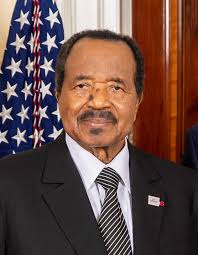92 year old Cameroonian President, Paul Biya, has officially declared his candidacy for the October 12 presidential election, aiming to extend his already 43-year tenure.
In a post on X, Sunday, Biya stated, “Rest assured that my determination to serve you matches the urgency of the challenges we face.” His announcement follows what he described as “numerous and insistent” calls from citizens across Cameroon and the diaspora.
Biya’s political longevity is unprecedented in modern African politics. Since assuming office in 1982 after the resignation of Ahmadou Ahidjo, Biya has never lost an election. His administration abolished term limits in 2008, allowing him to seek re-election indefinitely. If successful, this eighth term would keep him in power until nearly 100 years old.
Despite his enduring presence, Biya’s leadership has faced mounting criticism. Allegations of corruption, embezzlement and poor governance have plagued his administration.
His prolonged absences from public view—most notably a 42-day disappearance last year—have fueled speculation about his health and capacity to govern. The government has consistently dismissed such concerns, even banning public discussion of his health as a matter of national security.
The political landscape surrounding Biya’s candidacy is increasingly fractured. Two prominent northern allies, Issa Tchiroma Bakary and Bello Bouba Maigari, have exited the ruling coalition and announced their own presidential bids. Tchiroma, once a key minister, accused the Biya administration of having “broken” public trust. Their departure signals a significant shift in the political dynamics, especially in regions that previously delivered strong support for Biya.
Reacting to Biya’s latest bid for the presidency in a report monitored on BBC, many people on the streets of the capital Yaoundé do not feel safe commenting openly on politics for fear of reprisals. Others withheld their names, ages or occupations out of caution.
“Never in the political history of nations have I seen or heard that a man of that age, is declaring his candidacy in a presidential election,” said one member of the public, who spoke on condition of anonymity.
“I really thought he would go and rest, and hand over to a new generation,” another local resident, Camille Esselem, said of Biya in surprise at the news.
However, some people welcomed another seven years under the veteran leader.
“The president still has much to offer the Cameroonian people,” said public sector worker Ngono Marius, adding, “if he is a candidate it means he’s capable of leading.”
Sylvia Tipa, a consultant in the city, told the BBC that although she believes in change and the democratic principle of “relaying” power to the next comer, maybe “there’s no-one better than Biya.”
“So far he has done a lot for the nation – we see his role played in conflict management and many other aspects,” she added, wondering if perhaps his long stay in power was God’s doing.
However, analysyts believe Cameroon’s political future remains uncertain.
The country has only had two presidents since gaining independence in the early 1960s. Biya’s continued rule raises concerns about succession planning, especially given his age and health. Analysts warn of a potential crisis should Biya become incapacitated or pass away while in office.
African politics analyst Dr. Babayo Sule, of the National University of Lesotho in South Africa, has described certain regimes on the continent as “authoritarian, totalitarian and dictatorial — in some cases even exceeding the excesses of past military governments in Africa, due to their blatant disregard for the rule of law.”
Sule criticised what he referred to as Western hypocrisy, stating that “Such regimes continue to receive tacit endorsement from the West, including figures like Paul Biya, despite their authoritarian practices.”
He argued that this stance stands in contrast to the treatment of countries like Rwanda, “which are often condemned for resisting external control and asserting their sovereignty.”
Biya won the 2018 election with 71.28 percent of the vote, though opposition parties alleged widespread irregularities.
Last October, he returned to Cameroon after a 42-day absence, which had sparked speculation he was unwell.
Under Biya, Cameroon has grappled with economic stagnation, high unemployment and persistent insecurity. The Anglophone regions remain embroiled in a separatist conflict, while the north faces threats from Boko Haram insurgents.
Critics argue that Biya’s extended rule has stifled democratic development and exacerbated these challenges.

